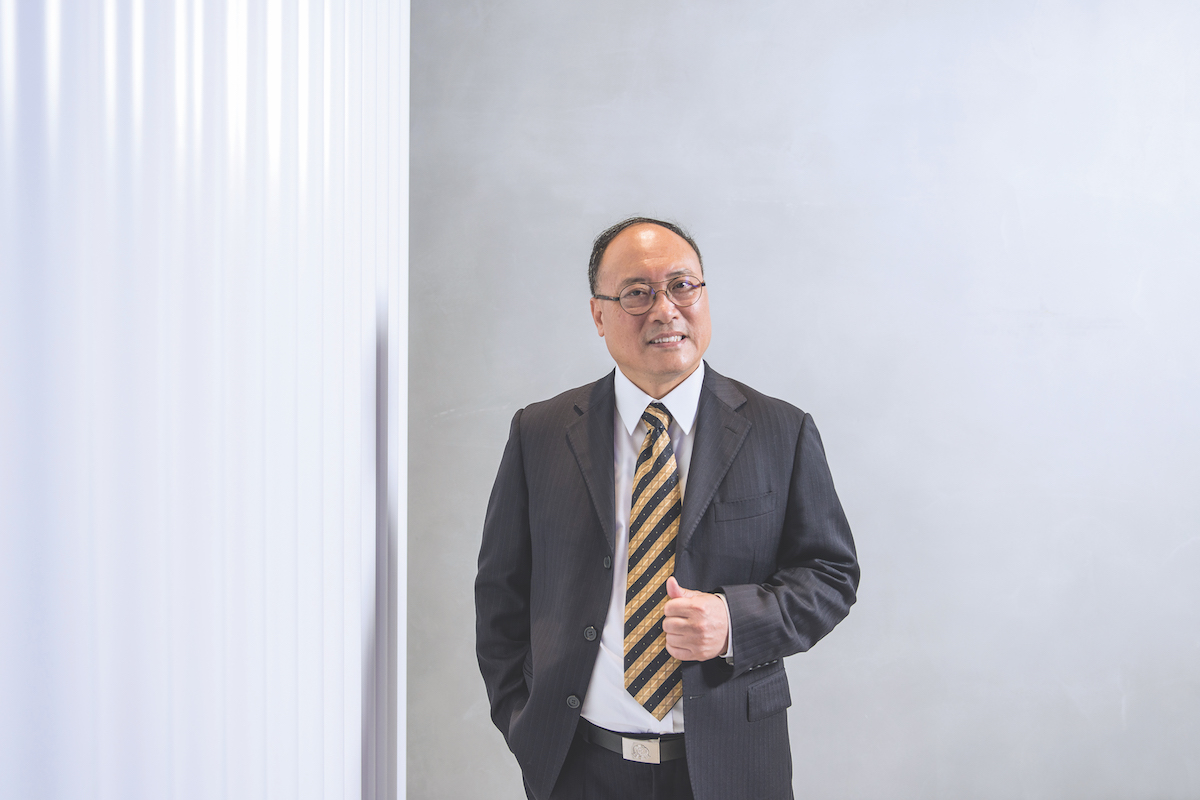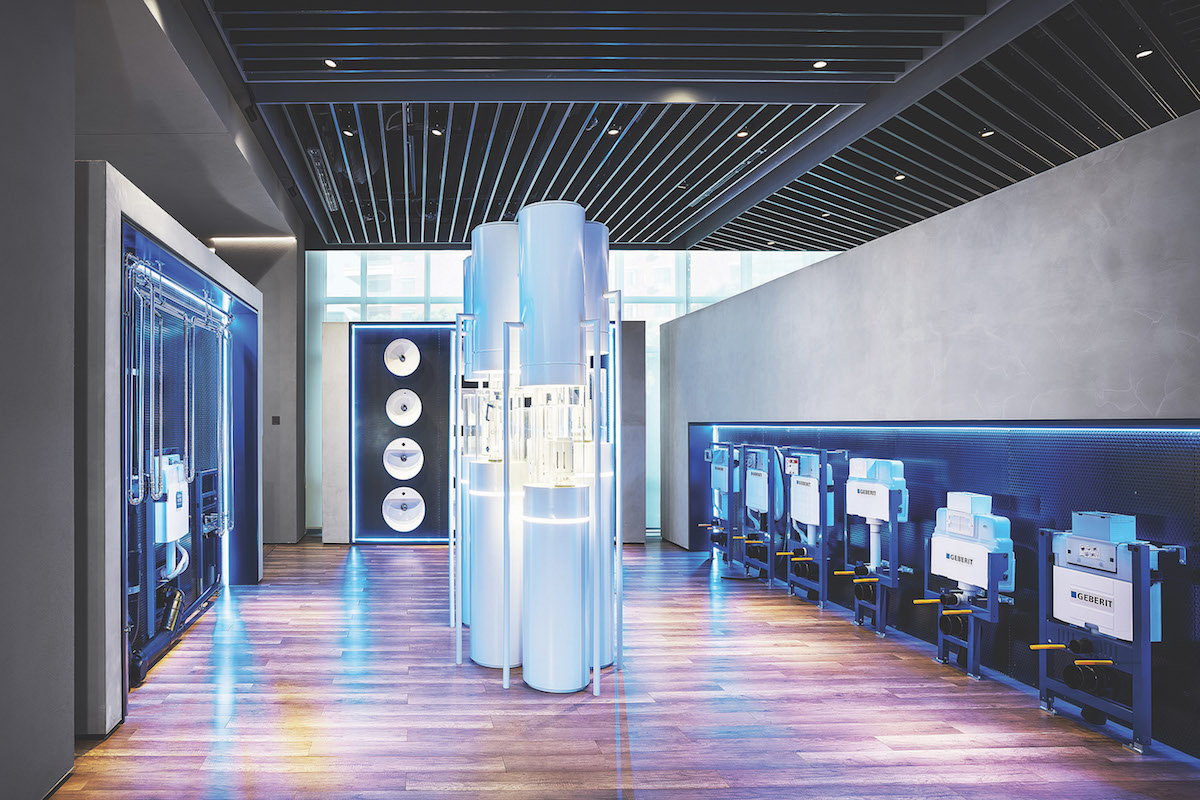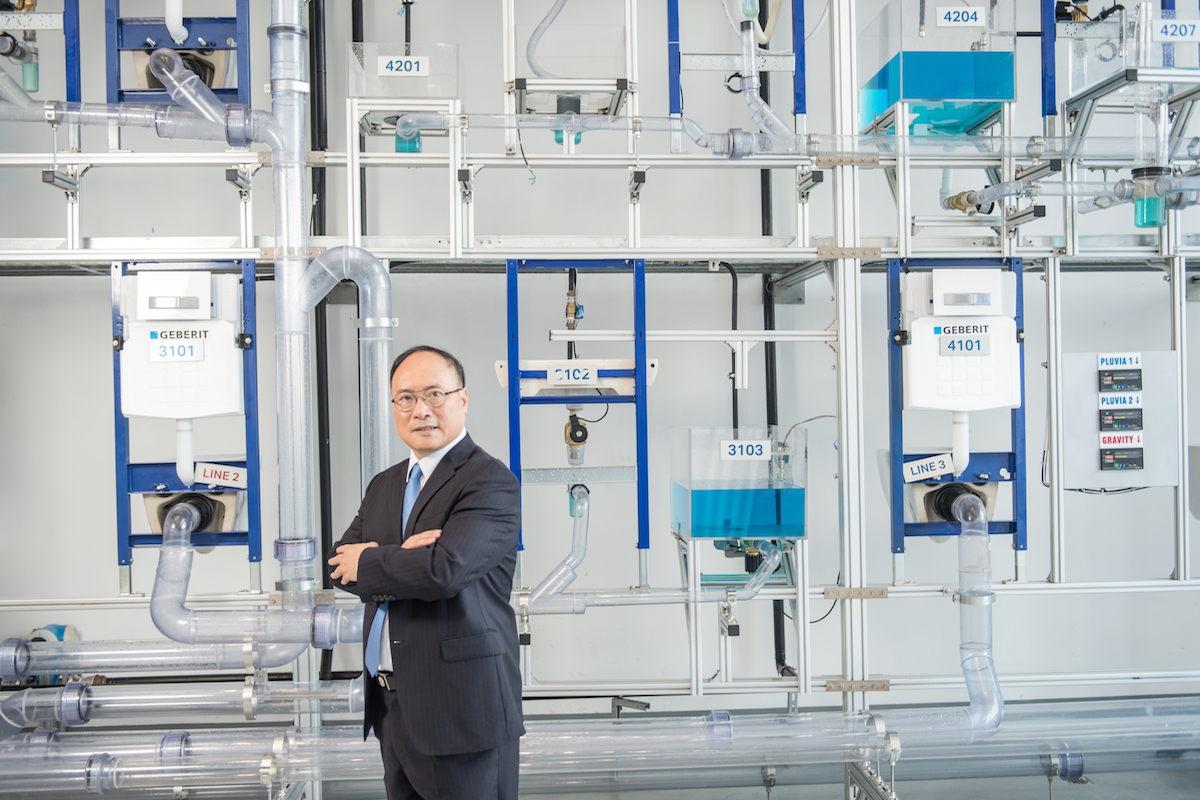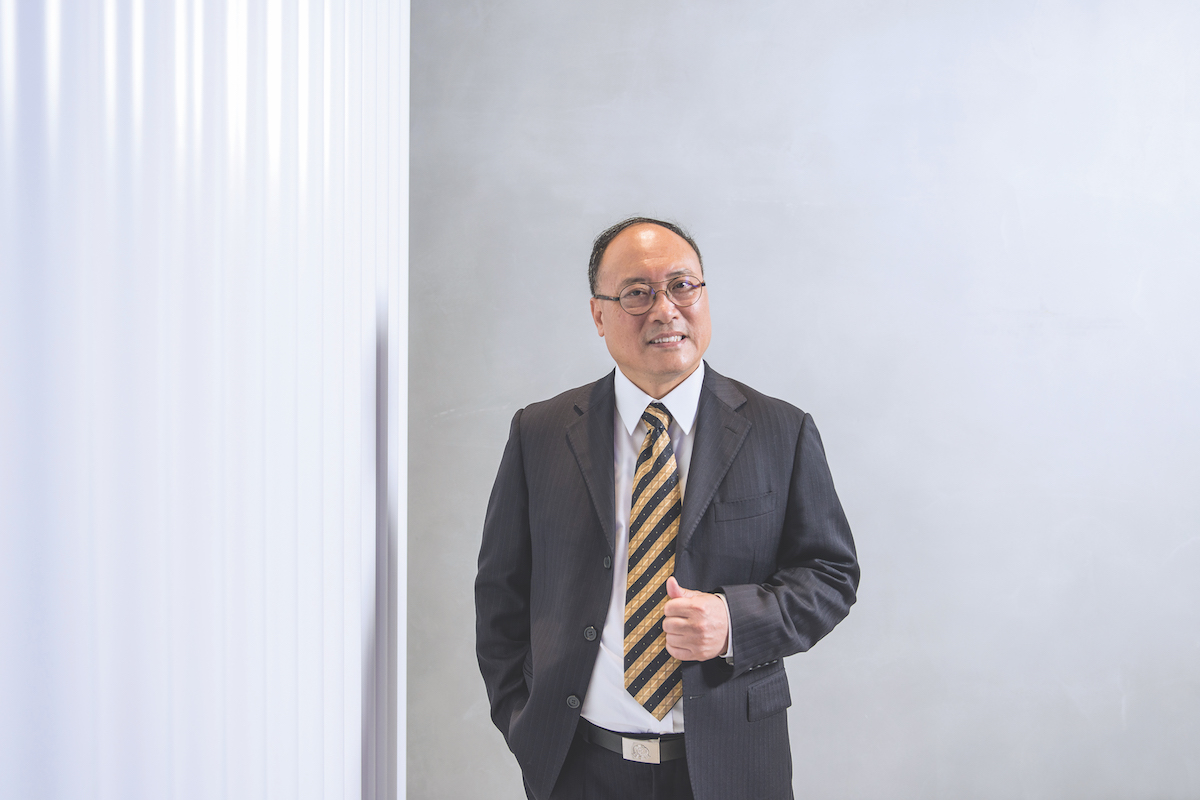Having all but conquered Europe, Swiss multinational Geberit has its sights firmly set on success in the Asia–Pacific region. With the region’s CEO James Mao in the driver’s seat, the sanitary systems company holds a focus on growing its share in the Chinese market.
“Certainly, my goal is to develop Geberit as one of the most important players in the market we serve in the future,” James tells The CEO Magazine. “I am strongly committed to this brand as well as this organisation to grow its business in China.”

James comes with an extensive 35 years’ experience in the industry, including 12 years at a Fortune 500 company, Leggett & Platt, as Asia–Pacific CEO, and an eight-year stint for the American multinational manufacturing company Kohler.
During his tenure there, he developed its business as a market leader in China. It is this opportunity to carry out a similar feat at Geberit that motivates James.
Even though a large portion of Geberit’s business is still currently out of Europe, James is clear that China’s booming market offers plenty of potential for the company. “China will continue to be the biggest market in the world, and it has great potential for growth,” he says.
Having identified strong signs of growth in the Chinese sanitary wares market over the past five years, James is adamant that it will continue to grow at a healthy rate and hopes to take advantage of this scenario.
“The market in China is becoming more and more receptive to our systems and products,” James says. “Our products offer improved quality to the market base, as consumers become more sophisticated and begin to look to improve their lifestyle.”
“The market in China is becoming more and more receptive to our systems and products.”
The company’s innovative concealing system, also known as a behind-the-wall system, is one of its most popular. Its benefits include a range of drainage options, optimisation of space, improved air quality, and optimal hygiene. “Geberit is strong, not only in concealing systems, but also in front-of-the-wall systems and other product offerings,” says James.
There’s a strong focus on research and development at Geberit to recognise the differences between the European and Asia–Pacific markets in order to introduce more product lines that are in demand locally.
“We are in the process of developing new strategies to grow the local market,” James discloses. “These strategies include the development of higher-performing organisations, distribution, manufacturing, R&D, and the introduction of locally needed products for residential and commercial markets, as well as building a brand for these markets.

“We are developing our distribution channels and supply chain, and are strengthening and improving local organisations,” he continues. “These strategies will require multiple years of effort to be effectively executed, but it certainly is achievable. Geberit is committed to this market.”
With James’ eyes set on developing Geberit “as one of the key players in Asia”, to achieve this, he is aware of the role he must play to transform Geberit into being more relevant than its competitors. “I’m hoping to show that we can provide a better product to consumers that will enable them to enjoy a better life,” he says.
“I hope that, through my efforts and leadership together with my team, we can turn Geberit into one of the leading players in the local market.”
Geberit Asia–Pacific already stands out from its competitors with its combination of technology, innovations and product designs. “We are a unique total solution provider with innovative products and leading technology in the marketplace,” James says. “Operations and supply chain are the key competitive advantages in the marketplace we feel proud of.
“We have implemented a new customer-driven supply chain system that improves our delivery time and, in turn, our customer satisfaction,” James continues. “We have been practicing a milk run program to improve the logistic performance and our deliveries, and we have also implemented a purchase-to-pay program to reduce labour costs as well as ensure our compliance in the purchasing process.
“We have also added new vendors in the system to improve our costs as well as reduce our supply chain risks,” James says, adding that maintaining strong partnerships with vendors is paramount.
“We treat our vendors as our valuable partners and provide them training and share best practice with them in an effort to improve their performance. In return, we also benefit by improving our competitiveness in the marketplace.”
James recognises that he needs to be visionary, taking a strategic view of future developments in the market, and effectively cultivating and executing the right strategies in order to get the company to where he wants it to be. And this starts with providing a supportive environment for the company’s people to work effectively together.
“I always encourage my team to be open-minded, and I listen to them when we have problems,” he says. “My management style is open and positive, and I encourage input from my team, reaching consensus through dialogue with them. With increased input from the team, the quality of my decision-making improves, and it allows them to become more involved.”

Success of the company and its employees is something Geberit celebrates. No matter where employees work, whether it’s on the manufacturing floor or as part of the purchasing supply chain, they are encouraged to volunteer their ideas. And when investment in these ideas pays off, Geberit rewards its staff.
Every year, coinciding with Chinese New Year celebrations, the company acknowledges the efforts and contributions of its employees. “I like to create a culture in which people are recognised, rewarded and motivated to continue to do better things,” James says.
It’s clear that with more than three decades of experience working with large organisations, James has a highly developed understanding of how to work within the structural constraints all companies face.
For him, one of the most important characteristics a leader can have is the ability to strike a fine balance between ambition and these limited resources. “Every organisation has limited resources, and it’s important to learn how to allocate the resources most effectively to focus on strategic initiatives,” he says.
“Geberit has a great future in China and I’m committed to growing the organisation in the Asia–Pacific market.”
Going forward, Geberit will continue to focus on increasing its competitiveness and providing value to both its customers and its partners in the market. “Geberit has a great future in China and I’m committed to growing the organisation in the Asia–Pacific market,” he says.



